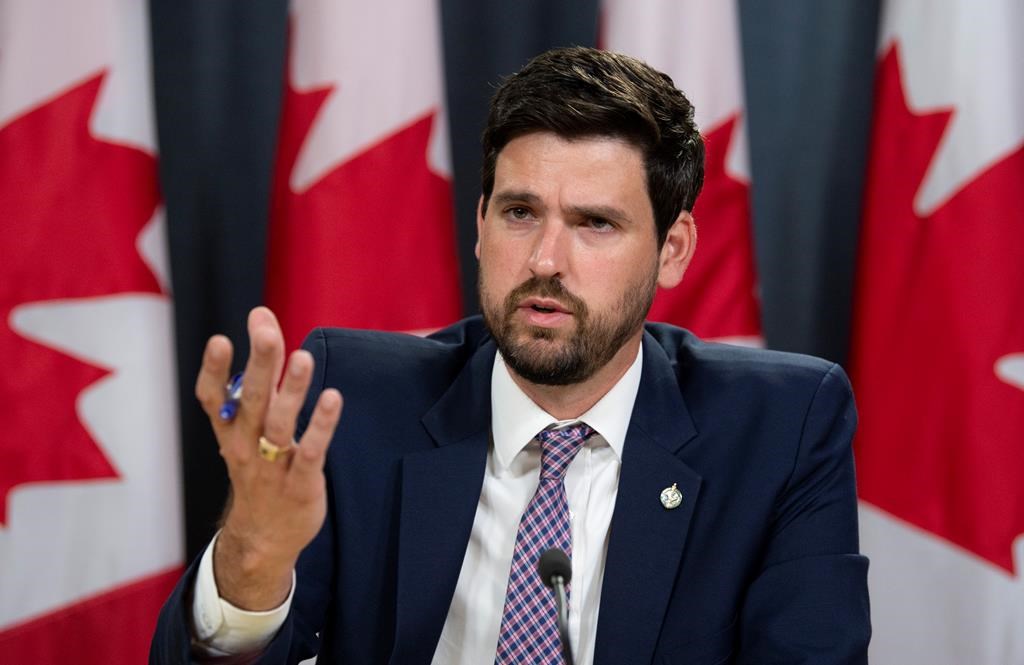Ottawa — Immigration is the engine of the Canadian economy, helping to address labour shortages and keep our communities thriving. Newcomers have played an essential role in addressing some of our most severe labour shortages throughout the pandemic, including on the front lines. However, there remain challenges, including processing delays that have led to frustrations for those trying to come to Canada to work or reunite with their families. While Canada welcomed the highest number of permanent residents in a single year in 2021 by processing a record number of applications, border restrictions and other pandemic-related factors have led to delays for many applicants, and long waits for application updates. We know these need to be addressed.
Today, the Honourable Sean Fraser, Minister of Immigration, Refugees and Citizenship, announced measures to improve client experience and modernize the immigration system. These measures are part of a broader process to address key challenges faced by our clients, and achieve the more predictable processing times that our clients expect and deserve.
We know that many talented and skilled newcomers have waited long during the pandemic. In the Economic and Fiscal Update 2021, the Government of Canada proposed $85 million in new funding to reduce application inventories. The investment will support additional staff, allowing us to welcome people who can help address labour shortages and to return to processing service standards in various programs by the end of this year, including for study permits, work permits and permanent resident card renewals. We are also working to reduce processing times for visitor visas and proof of citizenship.
These improvements will build on what Immigration, Refugees and Citizenship Canada (IRCC) has already done to reduce wait times, such as hiring approximately 500 new processing staff, digitizing applications, and reallocating work among our offices around the world.
To help accelerate our processing work, we are expanding the use of advanced data analytics in helping officers sort and process visitor visa applications submitted from outside Canada. During the time the data analytics system has been used for visitor visas, it has been shown that routine files can be assessed 87% faster, resulting in some applicants receiving decisions more quickly while program integrity is maintained. An IRCC officer will always make the final decision, but this system will improve client service by helping IRCC manage the increasing volume of visitor visa applications.
IRCC made over half a million decisions on permanent resident applications in 2021. We are further increasing processing capacity and plan to make 147,000 permanent residence final decisions in the first quarter of 2022—doubling what was done in the same period last year.
To further support permanent residence applicants, we will be expanding the digital application portal to include more clients in summer 2022. The transition to an online application process will minimize COVID-19-related delays associated with processing paper applications, and will provide clients with immediate confirmation that their application was successfully submitted. Efforts to date have allowed average processing times for spousal sponsorship applicants to return to the service standard of 12 months for new applications.
We understand that clients want easier access to status updates on their case files. That is why we will also introduce a new Permanent Residence Application Tracker in February 2022 for spouses and dependents, to allow clients to easily access their application information and status online.
To further address COVID-19-related challenges and expedite the process, IRCC has also developed a portal to allow permanent residence applicants in Canada to finalize their process and receive their permanent residency cards without any in-person interaction. From June 2021 to December 2021, 225,000 permanent residents have used this portal.
For citizenship applicants, IRCC has introduced online testing, developed an online application tracker and launched virtual citizenship ceremonies. Over the last few months, we have hosted approximately 350 virtual ceremonies per month, and more than 170,000 new Canadians have been sworn in since April 1, 2020. We are continuing to expand the use of virtual ceremonies. Moving forward, we are exploring an option for those who wish to self-administer their Oath by signed attestation, and celebrate their citizenship at a later date. This would shorten the waiting time for those at the final stage of their citizenship process.
As our work continues, IRCC remains dedicated to providing meaningful, timely, and transparent information to our clients. This includes updating our online processing times tool in the coming months to give our clients more up-to-date estimates of how long it will take to process their applications. We will continue to focus on ways to modernize how we deliver our programs and services, so Canada can continue to be a destination of choice for people all over the world.
Today I announced new measures that will help reduce wait times, improve client experience, and help modernize our immigration system.
— Sean Fraser (@SeanFraserMP) January 31, 2022
These measures build on the work we've already done to reduce wait times, including hiring 500 new processing staff and digitizing applications. pic.twitter.com/arIBItRKCo


